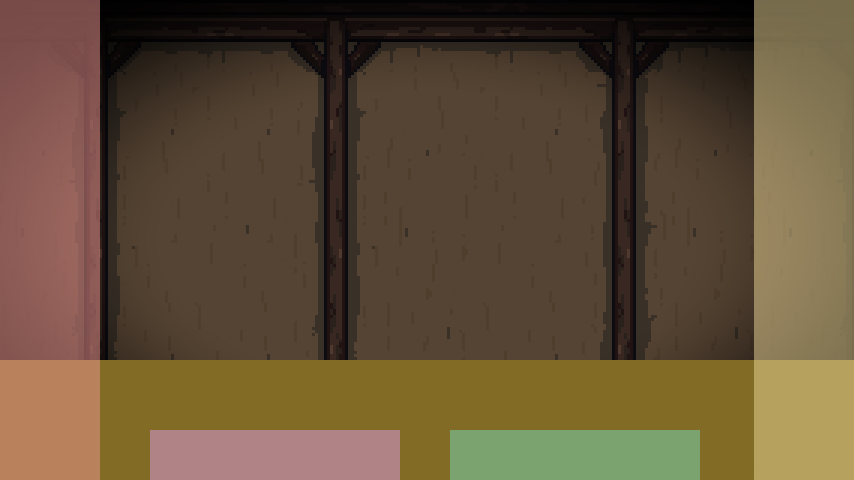Limitations give rise to creativity, or so the saying goes. I have an overwhelming tendency to take ambitious, idealistic approaches to projects, particularly when they fall within my usual areas of interest. Nowhere is this truer than video game design—I have to put my undergrad degree to use somewhere. As such, the 25 event limit in Construct3 is a driving factor in my decision-making on this project. “Make a functional game with 25 or less conditions” is a tall order, but it prevents me from spiraling into unsustainable scope creep this close to the end of the semester.
That said, I am feeling the weight of executive dysfunction. I have given the project less time and energy than it is worth, which leaves me with a hazy idea of what still needs to be done. In the past, I had synchronous classes and friends to keep me accountable for working continuously on major projects. Through faults with the format and my own attitude towards it, I have neither, which has made it easy to overlook the looming deadlines until they draw too near to ignore. In the future, I need to be more intentional with my work time and space. Better end products are a natural result.
None of this is to say that I am phoning in the project, far from it. I take pride in my work, even if it isn’t up to the theoretical maximum that I can or could once have produced. The ultimate objective is a café management sim, including several café layouts, bussing tables, and a campaign of escalating difficulty in addition to drink preparation. This, however, goes far beyond my constraints; stretching the game too thin would result in a shallow experience. As such, I have taken the first idea from the branching narrative project and retooled it as a drink preparation game. Specifications are as follows:
The Steaming Cauldron
Subject Area: Coffee making, customer service
Knowledge Domain: Procedural
Learning Objective: Learners will be able to apply the processes required to prepare common espresso drinks quickly and accurately.
Game Goal: Fulfill customer orders quickly and accurately within a time-limited play session.
Core Dynamics: Construct/Build, Solution
Mechanics: Role, Reward, Rapid
Assessment/Scoring: At the end of a shift, the player receives a score by way of tips accrued for successful orders. These tips include bonuses for accuracy and speed, which are directly indicated on the results screen. In a fully realized iteration, the results would also include notes on areas of improvement, but this may not be possible under the current constraints.
Reward: Also likely unrealizable in this prototype. However, stars—earned by hitting benchmarks for tips, number of fulfilled orders, and accuracy in each level—act as currency for unlocking cosmetic options for their character and café. Similar to games such as Overcooked!, the total number of stars earned serves as the gateway to new levels.
For this prototype, I have taken the perhaps unorthodox approach of drawing on multiple horror games. At a basic level, the drink preparation is inspired by the three-ingredient system used in Coffee Talk (not a horror game), with the structure and general layout of The Closing Shift (a horror game which happens to involve a coffeeshop). To offer a reasonably wide play space in two dimensions, I decided to lift control mechanisms from Five Nights at Freddy’s. The player, though stationary, can swivel between a front-facing view of customers with access to ingredients and a side view of the coffeemaker and recipes. The exact layout may change as I further flesh out the project, but the core concept is there—without risk of being clobbered by animatronics.
The strongest point of peer feedback focused on the game’s learning objective—originally objectives, but reduced to one for this prototype. While I fully intend to lean into the balance of several overlapping processes in a full game, I don’t see my current, limited prototype quite reaching the point of higher-order thinking. This is an unfortunate reality, but does not make the single cog I can develop any less meaningful. A final game could reach the level of evaluation; application is a step in that process. Stepping beyond peer responses, I have appreciated the recommended reading and reference material provided by my instructor throughout the development process. I tend to keep all of the feedback open and accessible while I work, so I am certain that I will reference it further as the process unfolds.

